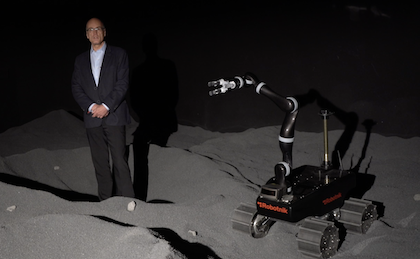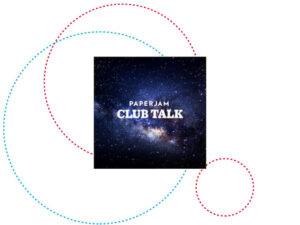Last week SnT and PaperJam Club joined forces to organise an event on the Space industry in Luxembourg.
The event brought together a mixed panel of experts from the institutional world, academia and the private sector, addressing the following questions: What are the prospects for New Space in Luxembourg? What are its strong points on the international scene? What roles should the State and private actors play in order to orient research towards what is « useful »? What are the main challenges Luxembourg has to face?
In the previous decades the space sector has been defined by public projects of study or exploration, technology testing, and large commercial endeavours in the form of satellite connectivity. Yet in recent years, the industry has gone through a massive shift as access to space has become more affordable. Now CubeSats (small, lightweight spacecraft) can be launched by start-ups looking to capitalise on the data that can be gathered from orbit for use on the ground, creating a whole new economy from Space. The business models primarily focused on data are new, but it is clear that in order to ensure a healthy ROI the technology being developed must be capable of meeting commercial objectives.
Jean-Jacques Dordain, ex CEO of ESA, gave an exclusive keynote on the evolution of the Space industry: from the 60s, when only two powers were present in the space industry: USA and URSS, to today, with new actors in the Space landscape making the industry ever more global. In particular, Dordain highlighted the influence of entrepreneurs that are changing the Space industry and bringing innovative ideas to life.
Speaking about Luxembourg, Dordain underlined its role as the capital of NewSpace. He highlighted how the Luxembourg government is offering a financial and legal framework, as well as access to students (through the Interdisciplinary Space Master), that is attracting more and more investments. Yet the main challenge for Luxembourg is the development of the domestic market. He recommends fostering homegrown startups that can develop and align with the world market. With this strategy he is confident in the success of the country.
Björn Ottersten, SnT’s Director, followed Dordain’s remarks by talking about the critical role of research in Space industry. He focused on how researchers at SnT focus on advancing technologies, in particular related to Earth-centric services, such as geolocation, navigation, communication Earth observation and more.
Speaking directly from our Lunalab, Ottersten gave an overview on SnT’s Space labs that are used for research and educational purposes. At SnT, he believes it is important “to find a sweet spot between doing research for scientific advancement and also bringing these advancements into practice through collaboration.” That is why SnT focuses on partnering with companies of all sizes to bring innovation to the market.

Ottersten in the LunaLab
The event concluded with a roundtable discussion with Prof Symeon Chatzinotas from SnT, Julien-Alexandre Lamamy, the Managing Director of iSpace Europe, and Michel Poucet, the CEO of NewSpace startup Lift Me Off.
At the roundtable experts discussed the advantages that Luxembourg has as a space hub. They cited how the local space ecosystem benefits from the support of the government and easy access to decision makers, as well as a perspective that is focused on the future, in particular resource exploration.
